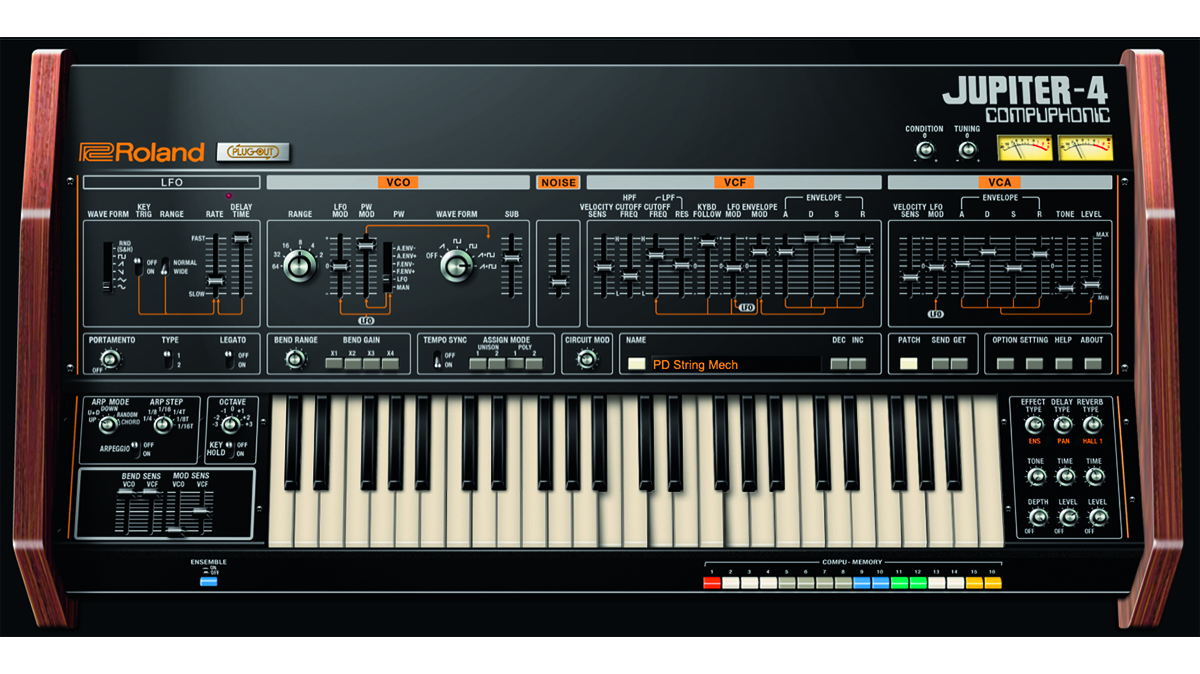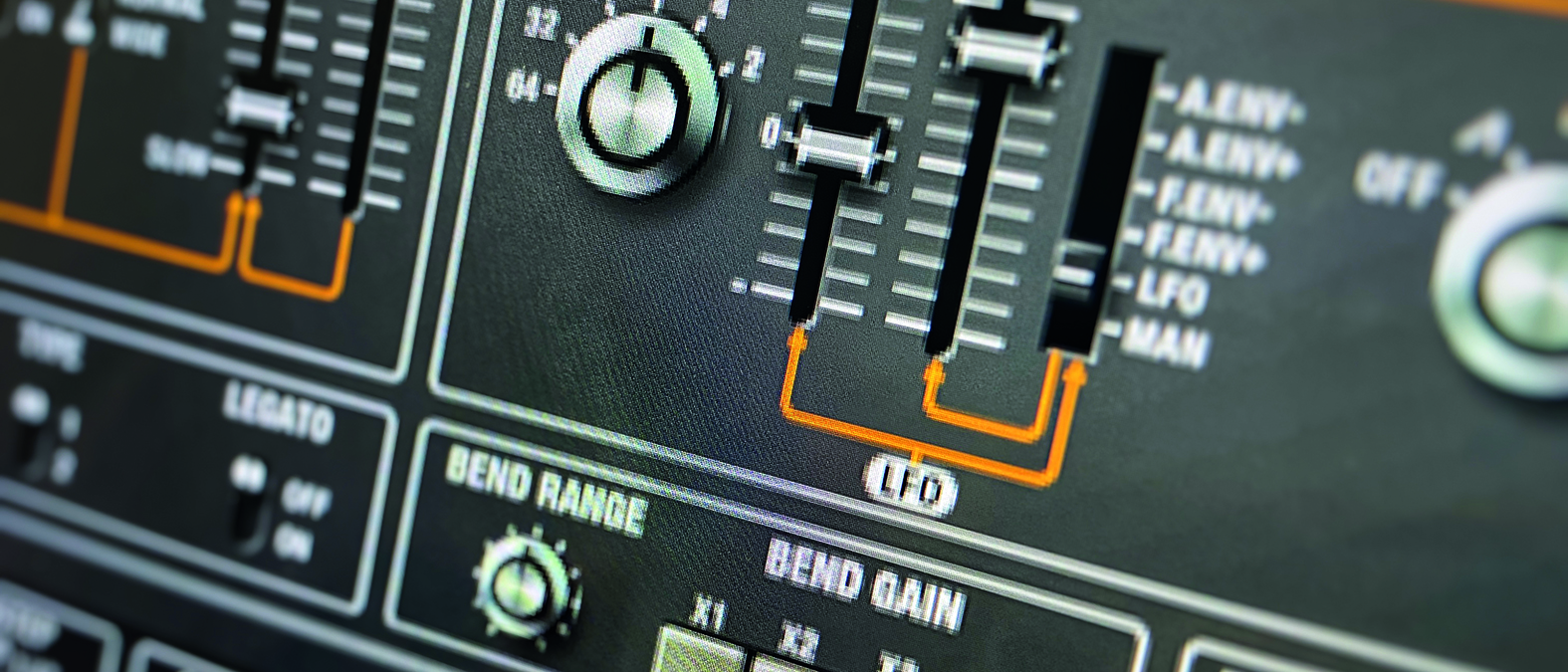MusicRadar Verdict
This Jupiter emulation looks, feels and sounds great – a worthy tribute to Roland’s original polysynth.
Pros
- +
Looks and sounds like a classic.
- +
Fantastic (expanded) selection of presets.
- +
Effects round out the sound nicely.
Cons
- -
Sonically fairly similar to other – widely emulated – Jupiter models.
- -
Editing effects can be fiddly.
MusicRadar's got your back
Roland Jupiter-4: What is it?
Though the later Jupiter-8 and -6 are more sought-after on the second-hand market, Roland’s Jupiter-4 is the synth that started it all. It was not only the first in the Japanese brand’s Jupiter line – still ongoing over 30 years later – but Roland’s first ever polysynth full stop.
As with other Roland classics, the Jupiter-4 was a fairly straightforward instrument in design terms, but still had a distinct personality. Labelled ‘Compuphonic’ the JP-4 combined ’70s-style analogue with some modern-for-the-time touches that would become synonymous with ’80s synth design, key amongst them being digital control and basic preset capabilities.
The original instrument had four voices, each with a single oscillator with saw, triangle, square and pulse-width modulation modes, plus a switchable sub oscillator. These feed into high-pass and resonant low-pass filters, with two ADSR envelopes for modulation, along with a pleasingly slow-moving LFO. Chorus/ensemble effects and a simple arpeggiator finish off the ‘classic Roland’ vibe.

Roland Jupiter-4: Performance and verdict
Naturally, Roland has updated the design somewhat for this Roland Cloud revisit. The original’s 10 – notoriously lacklustre – presets and eight user slots have been replaced by a 64-slot preset bank that can be expanded with user patches. There are other changes too, which subtly expand the flexibility without altering the overall character, including doubled polyphony, a widened range for the oscillators, additional arpeggio modes and slightly expanded modulation options.
As with other ‘Legendary’ instruments in Roland’s Cloud collection, the Jupiter-4 is powered by the brand’s Analog Circuit Behavior technology, which has already proved its ability to convincingly ape the sound of classic hardware. In its default state, the overall tone here is a touch brighter than you might get from a hardware version (at least one that’s had three decades of use). Roland allows users to compensate for this, however, with the addition of new Circuit Mod and Condition dials, which can be used to age the virtual circuitry and nudge parameters slightly off from their ‘straight out the box’ specifications.
JP-4 was/is a warm and powerful synth with its own character
Roland has really got the hang of these virtual recreations now, and the Jupiter-4 looks and feels great, with a top notch collection of presets. The synth can be used as a ‘Plug-Out’ exported to the System-8 too, with an option to change the virtual control panel to match the interface of that synth.
It’s a great addition to the Cloud then, but how valuable is the JP-4 as a standalone purchase? That probably comes down to the synths you already own. There’s no doubt that the JP-4 was/is a warm and powerful synth with its own character, but whether that character is quite distinct enough from any other Jupiters, Junos or other retro polysynths you may already have at your disposal is up for debate.
MusicRadar verdict: This Jupiter emulation looks, feels and sounds great – a worthy tribute to Roland’s original polysynth.
Roland Jupiter-4: Hands-on demos
RolandChannel
Starsky Carr
sonicstate
Nu-Trix The Synth Guy
Roland Jupiter-4: Specifications
- KEY FEATURES: Formats: VST, AU, AAX, Plug-Out for Roland System-8.
- PRICING: Available in Roland Cloud subscription tiers Pro ($9.99p/m) and Ultimate ($19.99p/m). Lifetime key available for $199.99.
- CONTACT: Roland
I'm the Managing Editor of Music Technology at MusicRadar and former Editor-in-Chief of Future Music, Computer Music and Electronic Musician. I've been messing around with music tech in various forms for over two decades. I've also spent the last 10 years forgetting how to play guitar. Find me in the chillout room at raves complaining that it's past my bedtime.
